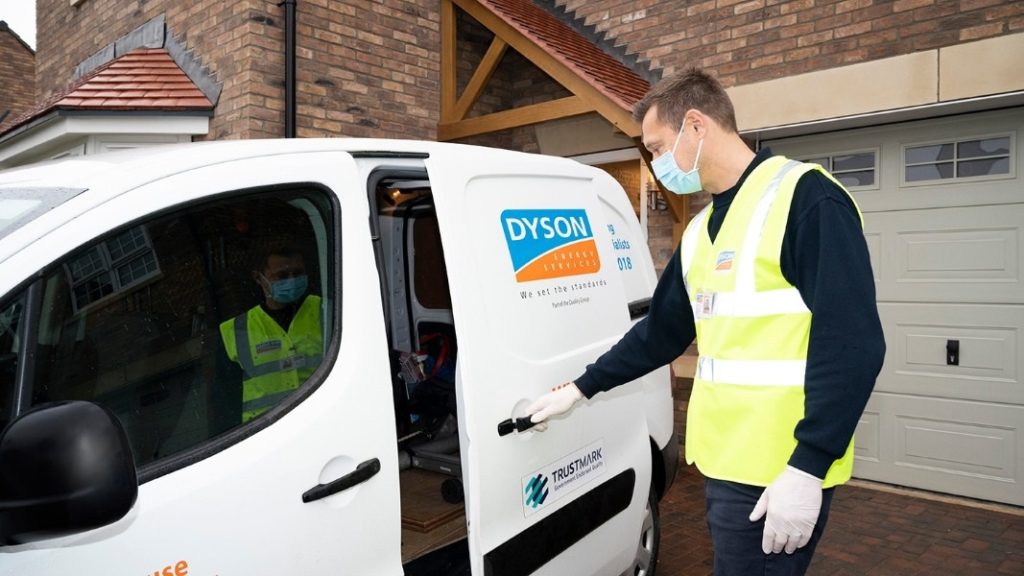New Government driven standards for ECO installations : benefits to householders

From the 1st of July 2021, it is mandatory that all work carried out by installers, under the Energy Company Obligation (ECO), is compliant with a new specification, known in the industry as PAS 2035. This is great news for householders who qualify for ECO funding around the country, as the changes will offer greater reassurance to customers having energy retrofit improvements.
In this blog, we look at what PAS 2035 is in layman’s terms and how it will positively impact households who qualify for funding for insulation and heating measures through ECO.
What is ECO?
The Energy Company Obligation, otherwise known as ECO, is an obligation placed by the government on to the energy companies to provide funding to qualifying households, for energy efficiency measures.
It is designed to help low-income families and those in receipt of benefits deemed to be in fuel poverty, improve the energy efficiency of their home, save money on energy bills while helping to reduce carbon emissions.
You can find further information on the Energy Company Obligation (ECO) and the qualifying criteria by reading our blog here.
New government driven standard: What is PAS 2035?
PAS 2035 is the new overarching standard that installers must follow, when upgrading the energy efficiency of domestic properties, which are funded via the Energy Company Obligation (ECO).
These new standards were introduced by the government department Business Energy and Industrial Strategy (BEIS) and will be overseen by TrustMark, the only government endorsed quality mark.
Installers across the country have been working hard for several years to help the government achieve ECO targets, whilst working to industry standards and best practice, delivering quality installations in householder’s homes.
Why the new government driven standard?
Essentially, there are two main reasons why the specification installers must now work to from the 1st of July, has been updated:
- The PAS standards have been updated following the recommendations of the Each Home Counts review, commissioned by the government. This was an independent review, and it outlined several recommendations on how the industry could improve and enhance the householder experience when installing energy efficiency measures.
- Furthermore, the government have committed to achieve net zero carbon by 2050. To achieve this target, the full potential of each property needs to be achieved, hence why there is an emphasis on the taking a whole house approach.
How will householders benefit from PAS 2035?
Householders eligible for funding through the Energy Company Obligation (ECO), will benefit from measures being installed to a new standard. This will give customers peace of mind and the confidence that high standards continue to be met, that they are receiving the best energy efficiency advice, additional ventilation considered with every measure installed, to an industry recognised specification.
Trust with TrustMark quality mark
All installers delivering measures through the funding for the Energy Company Obligation and to the new government standard, must be registered with TrustMark, which is the only government endorsed quality mark in the industry.
When a householder engages with a TrustMark registered business in relation to the installation of energy efficiency measures, they can have confidence that the work is delivered to improved, recognised specifications.
Whole house approach
PAS 2035 embraces a whole house approach to energy retrofit. Retrofit Coordinators and Assessors, will consider the fabric of the home, environment and householder behaviour when determining the most suitable measures to install.
Improved Ventilation
Ventilation requirements are an integral part in the energy efficiency of buildings. Where required, from the 1st of July 2021, installers will be installing additional ventilation to homes when delivering energy efficiency measures, funded through the Energy Company Obligation (ECO).
Depending on the needs of the property, this could involve installers fitting mechanical ventilation and window trickle vents.
With improved ventilation, householders will benefit from:
- Improved air circulation
- Improved air quality
- Reduced risk of condensation and mould
- Improved temperature control
- Positive impact on health and wellbeing
- Ventilation expels a build-up of pollutants
- Quickly and easily installed with no mess or fuss
- No extra cost to the customer and covered by funding
You can find out more about the positive impact of additional ventilation in your home, by reading our blog here.






